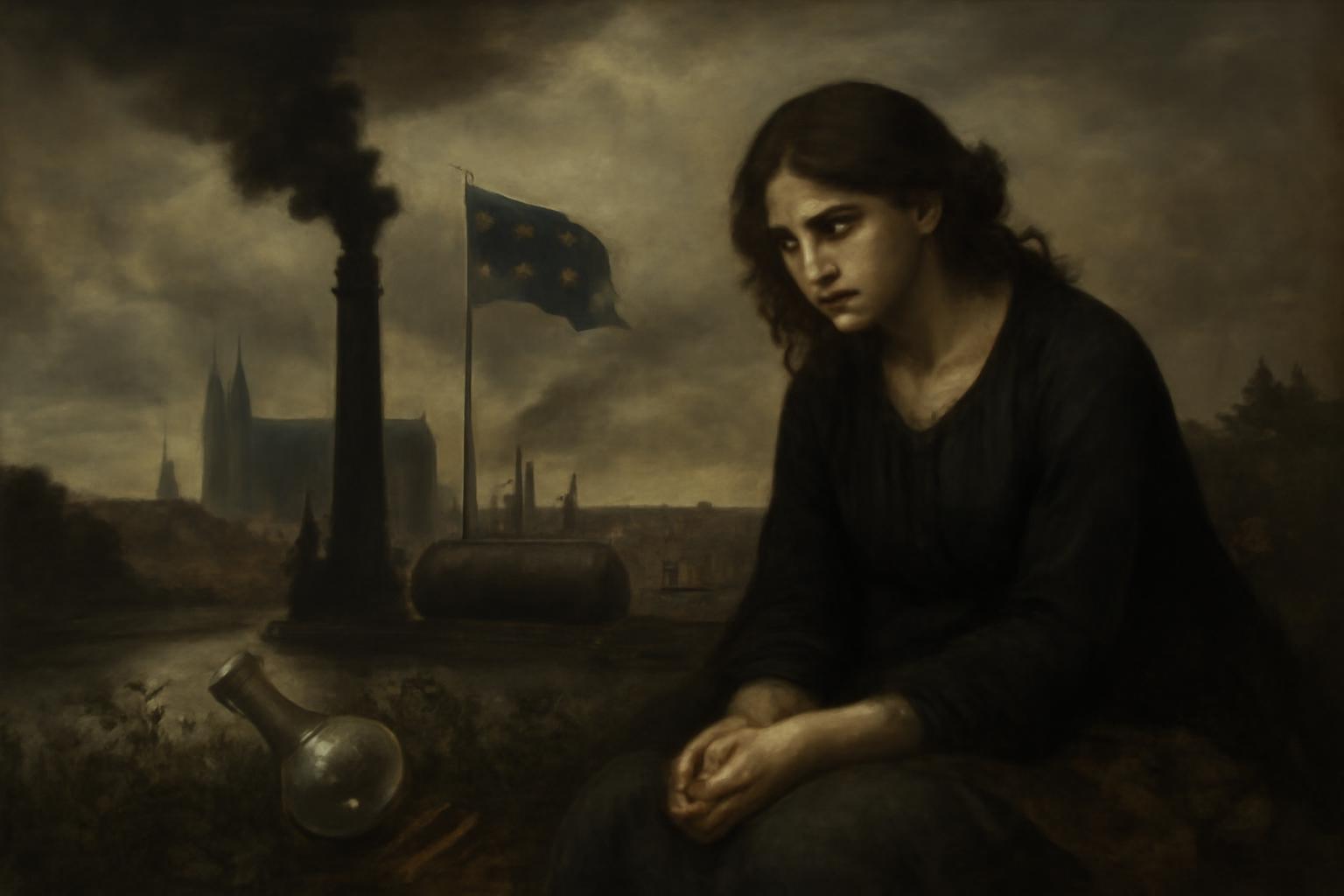Under the wan and trembling skies of a Europe promised deliverance by the dawn-light of renewables, a fresh act in the tragicomedy of our age unfolds. For, as yesterday’s iron-eyed Tycoons once hailed the Promethean leap from coal to sun and wind, now, grim Fate—with American oil in hand—goads the continent to retrace its own Dionysian spiral into dependency and doubt. The soothsayers of German enterprise, once urging a steadfast march toward Helios, awake to fear’s whisper and the reluctance of their countrymen, whose faith in solar and heat-pump alike wilts under the shadow of capricious policy and the iron whims of unseen powers.
History repeats its cruel jest. With one hand, the European order points toward a radiant, carbonless horizon; with the other, it pours forth billions into the black wells of Texan night. Hope dies, not with revolt, but resignation—a slow, bureaucratic strangling akin to the cruelest passages of Greek drama, wherein mighty houses fall not by sword, but by the pettiness of their own competing commitments.
Nietzsche, in a fever of lucidity, warned of the reactive spirit that shuns affirmation, merely adapting to circumstances—a “herd morality” lacking the will to create its own destiny. Here, we see an unwillingness to risk, a yearning for security at the cost of conviction. Trust, that rarest stuff of civilization, is squandered for a momentary illusion of energy security, as subsidies and carbon taxes swirl in labyrinthine uncertainty. The Germans—once inheritors of Beethoven and Goethe, torchbearers of a mythic Kultur—now cower before the cloudy gods of Brussels’ bargains and Washington’s largesse.
Is this, then, the fate of the late West? That even as technology accelerates and the rhetoric of hope multiplies, the very conditions for progress are undone by the petulance of bureaucrats and the anxieties of industrialists? The chorus in this modern tragedy sings not of hubris, but of malaise; not of tragic catharsis, but of the ceaseless ache of disappointment: “What once was faith is now only calculation; what once was aspiration is now only transaction.” The anointed “Green Transition” is revealed as mere stagecraft, while the true Aletheia is that of decline—slow, ignoble, and unrelenting.
Thus do we witness not only the flickering of solar panels, but of a civilization’s will to renew itself—lost amidst deals and doubts, as the twilight gathers and another virtuous promise is bartered away for the comfort of familiar darkness.
